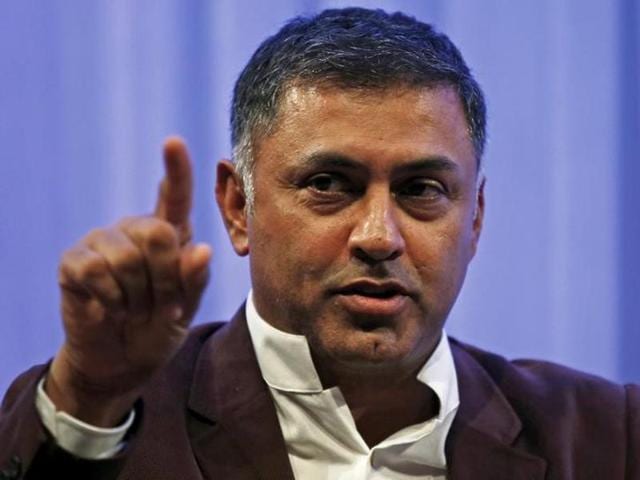Winner doesn’t take all: How Nikesh Arora ran out of luck in India
Former SoftBank honcho loves a scrap, but there is one fight he could not win.
The first time Nikesh Arora made a public speech, he spoke on polymers, and lost his script just before going on stage.

He was 17. There were hundreds in the audience. Did it give him self-belief that he went on stage and spoke without the script?
Arora is not sure. Talking about the incident during a talk show last year, he said: “The reason we end up being happy people is that we romanticise the past. I have no memory of what happened.”
It’s a pity Arora, who is stepping down as president of Japanese telecom and investment giant SoftBank, doesn’t like to romanticise the past. There is much fodder for the exercise.
Most of the students in the Benares Hindu University’s electrical and electronics engineering class of 1989 either took up jobs or went overseas for higher studies in engineering. Arora, after a brief stint with Wipro, chose to pursue MBA in the United States. He landed at the Northeastern University with two suitcases, $5,000 borrowed from his father, and wearing his favourite pair of white socks.
He finished his MBA in 1992 without a job. He was married and eager to repay the loan from his father. So he wrote 450 letters to different organisations asking for a job. Only Fidelity Investments accepted him. Arora has preserved the 449 rejections. When feeling low, he looks at them to tell himself that there have been worse days. And he silently thanks those who rejected him; they put him on the path he went on to take.
That and the exits of key executives at some of the companies he went on to work for. The most notable exits were at Google, which Arora joined in 2004. Sheryl Sandberg left in 2008 to join Facebook, Tim Armstrong the same year for AOL, and Marissa Mayer in 2012 for Yahoo. They paved the way for Arora’s rise to becoming the most valuable person at Google after founders Larry Page and Sergei Brin.
The charm seemed to be at work for SoftBank even before Arora joined the company. In July 2014, even Arora had joined SoftBank, its CEO Masayoshi Son asked him if he could do something about Kunal Bahl, Snapdeal’s founder and CEO. SoftBank wanted to buy half of Snapdeal, but Bahl was not biting. Arora stepped in and was able to buy a little over 30% of the equity.
Arora did not stop there. He met 40 entrepreneurs in two days. One of them was 21-year-old Ritesh Agarwal of OYO Rooms, who got SoftBank’s money. A little later, Arora flew Ola’s Bhavish Aggarwal to Tokyo to have dinner with Son. The next morning, they had a deal. Along the way, InMobi happened. Then Arora ran into Rahul Yadav.
There are many anecdotes to show Yadav loves a scrap. As the founder and CEO of Housing.com, he tucked into Zomato’s Deepinder Goyal and threw unsolicited gauntlets at Ola’s Aggarwal. Alok Kejriwal of Games2Win, after he questioned the position of two Housing.com hoardings, found that his Wikipedia page had been changed to show him as living under a Housing.com hoarding.
You cannot win against someone who loves a scrap. Whatever the outcome, they get what they love: a scrap. The winner was already decided when Yadav started fighting with his investors, the biggest of them being SoftBank.
As Yadav left Housing and the company lost its early lustre, the fortunes of SoftBank’s other investments in India did not exactly soar. There have been questions about the health of Snapdeal and InMobi. Ola has run into Uber, one of the biggest start-up successes in the world, though the Indian company’s camp also has Uber’s Chinese rival, Didi Chuxing. OYO, a market place for budget hotels, has to contend with Airbnb, and its acquisition of Zo Rooms appears to be less than triumphant.
But it was Yadav who television channels and social media thought of most when Arora’s resignation came. On Twitter, where Arora had his busiest day ever, he tried to impart dignity to the proceedings by saying he was sure Yadav had better things to do than track Arora’s life.
He was wrong. “Well, Nikesh, I’m very much lukkha these days,” Yadav posted on Facebook. Lukkha is a Hindi for total slacker. In this case, it also refers to a person who loves a scrap, against whom you cannot win.





